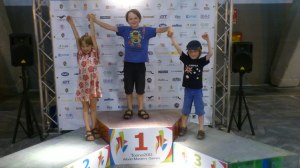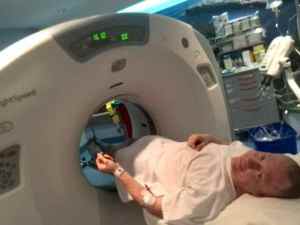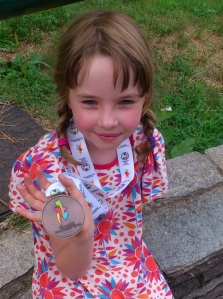I
stopped cycling at an elite level when I was eighteen years old. After
accepting a scholarship to study at the University of Melbourne, I moved to the
city, 200kms south of the small country town where I grew up. I moved in with
my older brother and sister, and within a few weeks started classes. I also
found some work to make ends meet - the first was an evening job as a
kitchen-hand in the restaurant of a local pub, and the other was the 6am-8am
morning shift at a nearby gas station.
I
arrived in Melbourne with some boxes of belongings and my racing bike. But I
think I had already accepted that racing at a top level was behind me. The previous year had been really tough
emotionally and financially due to my Dad’s illness, and as I looked forward I
found it hard to see any way that high-level sporting competition could fit
with what would be required to get through university. Everyone at home had
such high hopes for my academic future, and I felt a responsibility not to let
them down.
After
a couple of months in Melbourne I sold my beautiful Italian Chesini road racer
and used some of the money to buy a clunky mountain bike for commuting to
classes and work. In the second year at University I got a part-time job as a
bicycle courier, and spent my free hours racing parcels and documents to and
from offices across Melbourne. I was the fastest non-powered delivery guy that
the company had ever seen, and it was fun to experience the courier culture of
the inner city. I continued to follow
professional cycling of course, and even mountain biked a bit, but my days as a
competitive road cyclist were over.
As
I have discussed in my previous blog posts, I spent the next twenty years
chasing “success” before I had the chance to stand back and reflect upon what
that concept really meant to me. I have
described how my wife and I created a new picture of what we wanted for our
future, and how part of that picture included my dream to return to elite-level
road cycling. In 2009 I set myself a goal – that within four years I would
compete at in the Men’s Road Race at he next World Masters Games in Torino,
Italy.
When
I embarked on my cycling dream I was 39 years old, and weighed about 15
kilograms more than I did when I hung up my wheels two decades before. My
aerobic fitness was pretty lousy, as besides commuting to work I had done no
real endurance training for a very, very long time.
But
the weird thing about getting into training again was not how my body felt – it
was the way my head worked. As I started to train again, I would find myself
out on the road with a sense of guilt hanging over me. What I was guilty about
was the fact that I was not working, that I was not being productive in a
professional sense. There was this strange feeling that what I was doing was
bad, and that I shouldn’t be spending time in such a self-centred way.
Hard
work had been such a part of my life for such a long time, that I had relegated
my personal passions and hobbies to the domain of the frivolous. It was not
just cycling – by my mid thirties I went to the gym infrequently, rarely read a
long book and only occasionally relaxed in front of the TV with my wife. I was
infected with the ‘busyness’ disease so typical of high-achievers.
So
I would be out on the road, and instead of enjoying the riding my mind would be
in overdrive – I should be working, I should be achieving stuff. Sometimes,
especially in the first few months, I would be so overwhelmed that I would cut
my training session short and head home.
I
think the guilt also stemmed from the fact that I did not know anyone else my
age who was doing what I was doing. I felt a bit ashamed that while others were
working and being responsible, I was cycling in the middle of the day. I would
drop off my kids at School in the morning in my cycling gear, and I could see
the strange glances from the other parents, most of whom were on their way to
work. More than a few mothers asked my wife Anne-Mie if I had become unemployed
- they were genuinely concerned.
At
first, I also felt the need to tell white lies. A client would ask to schedule
a conference call or meeting, and I would say that I was not available as I had
another work commitment. Of course, there was no work commitment at all – I was
following a pretty disciplined training schedule, and if a call or meeting
clashed with my plan then I would try to move it.
The
same went for speaking or teaching opportunities – if a conference or program
date conflicted with specific race event or important training block, then I
would decline by saying I was already booked. I thought that if I told the
truth about my training or racing, then people would think I was not
professional and that I was putting my sport ahead of my professional
responsibilities. Of course, this was exactly what I was doing, but I was
fearful of the consequences of being honest.
The
problem of course was that telling these white lies compounded my feelings of
guilt as I was worried what would happen if people found out what I was doing.
And some of my colleagues and clients did find out through following me on
social media – I posted about my cycling, and often uploaded my training data
to one of the cycling specific tracker apps. Not very clever, I know.
After
about two years there was a turning point during a ride with a CIO friend of
mine. We were talking about the feelings of guilt that sometimes accompanied my
training rides, and Jean-Pierre said to me: “Jamie, you should not feel any
guilt. Do you know how many guys would love to do what you are doing? You
should feel guilty if you don’t go out on a training ride - because you can!”
That
talk was the catalyst for a change for me and I can honestly say that the
feelings of guilt completely disappeared after that. It was also a turning
point in another way – from that moment I no longer told lies about my training
and racing, Instead I did the opposite – I became completely honest by sharing
my Torino dream with others.
Whenever
I have the opportunity I talk to clients, colleagues and friends about my
cycling passion. I talk about how much I love my sport, about the thrill of
racing and of course about the bikes, equipment, nutrition and training. I show
them photos of my races, and beautiful places where I have trained.
What
astounds me is how many other people have at some point in their lives also
been passionate about something that they have left behind, and with a bit of
prodding will share their hidden desire to reconnect to what gives them joy. And
it does not have to be cycling – I talk to business people who have been
aspiring runners, swimmers, triathletes, surfers, musicians, artists, chefs and
writers.
But
something else happened after I started to talk more openly about my dream to
return to competitive cycling – people started to help me on the journey.
Colleagues started to ask me about the best time to schedule calls, and if
meetings might conflict with important events or training goals. My clients
started to offer to do Skype video calls instead of me travelling to their
offices, and I even had business contacts introduce me to possible coaches and
training partners.
My
colleagues at business schools such as Antwerp Management, London Business
School and ESMT in Berlin have offered me understanding. The same goes for my
amazing colleagues Eithne Jones and Sabine Bulteel who look after my
international keynote speaking engagements. Of course, they are never delighted
when I turn down an opportunity but they send me the message that my cycling
commitments in no way damage our long-term work together.
That’s
why it was not just me who won that medal at the World Masters Games in Torino,
or who was on the podium at the Giro Sardinia last year, or who accepted the
winners trophy in Cape Town earlier this year.
It
was a collective effort – I could not have done it without you.



